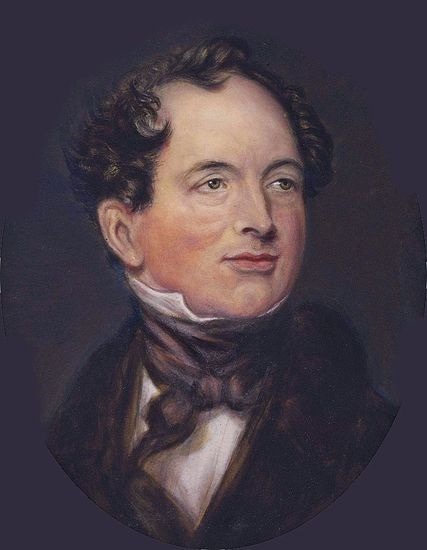Bill Cain's wise, incisive, compassionate "Equivocation" is like a burst of unexpected sunshine nearly strong enough to warm our entire snow-filled city.
But be warned, this intelligent, stunningly original dark comedy, a riff on the origins of "Macbeth" and "King Lear," as produced by Shakespeare's's own company, The King's Men, makes fairly sizeable demands on its audiences' concentration.
"Equivocation" is both so challenging and so rewarding that it might easily be mistaken for a dazzling new Tom Stoppard work, particularly as served up in director Garry Hynes' crisply high-minded staging, which never for a moment panders to its viewers.
Playbills handed out at the production's final preview performances contained a three-page insert not available earlier, clearly an attempt to shed clarifying light upon the play's events and the period in which they took place.
The members of Hynes' sterling six-actor company are responsible for over a dozen sharply defined characters, most of them complicated, and all of them brilliantly rendered.
Cain, a Jesuit priest best known until now for a single play, "Stand-Up Tragedy," has an amazingly secure grip on the materials with which he's dealing in "Equivocation," most of which are solidly based in fact.
In the first years of the 17th century, James VI of Scotland, having recently been crowned King James l of England, approached Shakespeare about writing a play based on the failed Gunpowder Plot. According to Cain, the King wanted something with witches in it, and Shakespeare happened to have finished writing "Macbeth," which filled the bill to perfection.
In 1604 and 1605, a group of five men, desirous of returning Catholicism to power in England, schemed unsuccessfully to destroy Parliament and murder the new monarch and his family. Guy Fawkes Day, named for the best-known of the conspirators, is celebrated in England every November 5, to commemorate the Gunpowder Plot. Fawkes was in charge of the 36 barrels of gunpowder the group had procured in order to help them achieve their goal. A cursory knowledge of British history would unquestionably prove handy for "Equivocation" audiences, although Cain's beautifully witty, vivacious play would very probably stand solidly on its own.
In the cast gathered by director Hynes, creator of the famed Druid Theater in Galway, Ireland, two actors, John Pankow and Charlotte Parry, play just one role each: William Shakespeare and his daughter, Judith.
The remaining four, Michael Countryman, David Pittu, Remy Auberjonois and David Furr, are assigned multiple parts, mainly playing actors (roles with which they have enormous fun), plus an assortment of plotters and politicians, universally delivered with gusto and charm to burn.
Pankow's Shakespeare, here called "Shag," is as wily as he is charming, while Countryman's work as Fr. Henry Garnet is a definite standout. Garnet, after being imprisoned in the Tower of London when some of his co-collaborators were captured and slain, was executed for treason shortly before the first performance of "Macbeth" in 1606.
Bill Cain's bountiful "Equivocation," as slyly devious as it is insightfully informed, is a splendid addition to the ongoing New York theater season.








